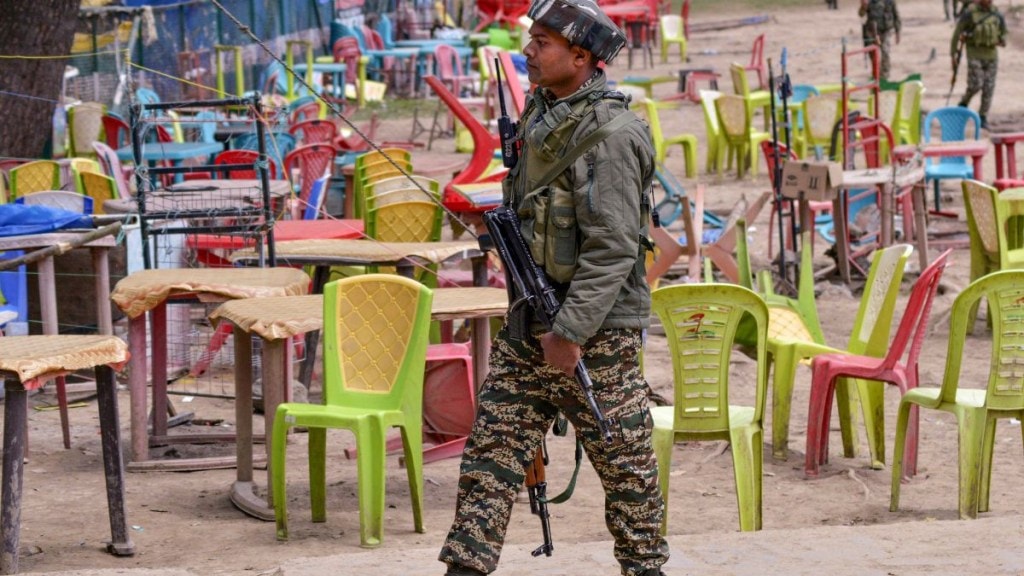Written by Farooq Wani
Besides being a brazen terrorist attack against innocent civilians, Tuesday’s terror attack in J&K’s popular resort of Pahalgam is also a major strike against tourism, the key economic driver of this region. Ironically, this brutal killing of 26 tourists visiting the scenic Baisaran meadow comes in the wake of a successful G-20 Tourism Summit-level organised in Srinagar.
Besides being a humongous human tragedy, this reprehensible terrorist attack has shocked Kashmir’s tourism industry and will definitely have serious ramifications for the hospitality sector in the coming days and months.
It’s not that Kashmir hasn’t witnessed major terrorist attacks in the past. On February 14, 2019 a car bomb blast had claimed the lives of 40 CRPF personnel in Pulwama. Though this incident did adversely affect tourism, since civilians weren’t targeted, tourist confidence wasn’t impacted. However, since only tourists were targeted, the Pahalgam terrorist attack is bound to discourage tourists from visiting J&K
The Resistance Front, a shadow group of the banned Pakistan-based Lashkar-e-Taiba (RF-LeT) terror group has claimed responsibility for the attack, but at the time of writing this article, no government statement confirming the RF-LeT’s role had been issued.
It’s now coming to light that the intelligence agencies had warned about a possible terror strike targeting non-local tourists. However, the threat mentioned the likely use of an improvised explosive device (IED) and didn’t give any specific details regarding the probable places and timings of this attack.
An attack on Kashmir tourism
The tourist season in the Kashmir Valley is currently at its peak, with thousands of domestic and foreign travellers making a beeline for popular and remote tourist spots; be it the famed Mughal Gardens, or the less well-known lush and scenic meadows located at base of the Zabarwan Mountain range.
The attack on the outskirts of Pahalgam has sent shockwaves across India and, as per reports; tourists are cancelling travel and holiday plans to Kashmir citing security concerns. Hotel managements and Shikara (Houseboat) owners are reporting cancelled bookings, affecting tourism footfalls and local businesses.
So deep has the impact of the terror attack been felt in the corridors of power in Delhi, that Union Home Minister Amit Shah is already in Srinagar to review the evolving security situation with the Unified Command Grid. The Prime Minister, Narendra Modi, is also expected to come and review the security situation with the top administrative and security brass in the coming days.
Kashmir’s business and travel trade bodies are observing a complete shutdown in the Valley today (Wednesday) in protest against the barbaric killing of innocent tourists, most of whom were visitors from other parts of India, with families and children.
Kashmir is shaken by the attack, with widespread mourning on the loss of innocent civilians and there has been large scale condemnation of this attack. Calls for unity against violence are being heard across the Valley.
Kashmiris join hands to condemn attack
Leading the shutdown is the Chamber of Commerce and Industries Kashmir (CCIK), the Jammu and Kashmir Hoteliers Club (JKHC), all major travel associations, transporters, restaurant owners and civil society groups. They have asked people to suspend their activities today and express solidarity with the bereaved families of the dead victims.
A Srinagar-based hotelier, described Tuesday’s terror attack as a wake-up call for all tourism and hospitality stakeholders, as well as the local administration, to “speak in one voice, condemn this violence and show that Kashmiris reject terror in all forms.”
The resort town of Pahalgam and surrounding areas is an attractive destination for tourists for two reasons – it serves as a route for the Amarnath cave shrine, which attracts lakhs of pilgrims annually, and secondly, it is where the Baisaran pine forest and meadow is located, both of which are popular trekking destinations. However, after Tuesday’s attack, a substantial drop in tourist footfalls is expected.
Rauf Tramboo, President of the Travel Agents Association of Kashmir, said the attack is a “huge blow”, and “we are already receiving queries on cancellations from businesses and consumer partners.”
Last month, while addressing the State Assembly, J&K Chief Minister Omar Abdullah had informed that in 2024, over 23 million tourists had visited J&K, as opposed to only 16.88 million tourists visiting the region in 2018. In the post-Covid period, tourism footfalls were on the upward mobile path. The year 2023 saw over two crore tourists visiting J&K, and over 27 lakh tourists visiting the Kashmir Valley alone.
Promoting Jammu and Kashmir as a tourist-friendly destination has been a priority for the Centre since the revocation of Article 370 in August 2019. A new tourism policy is now in place to encourage the hosting of cultural events in Kashmir and a new film industry policy to promote J&K as a film-shooting destination was introduced last year.
Terrorism is a compelling phenomenon and its effect on tourism is both complex and multifaceted. Its impact on the travel and tourism industry is enormous and damaging. It can lead to unemployment, homelessness, deflation and many other socio-economic ills. Tourism’s contribution to the economies of many countries is substantial, and, therefore, a downturn in footfalls is a cause of major concern.
The repercussions of a terror attack such as the one that took place in Pahalgam on April 22, 2025, has the potential of derailing tourism-linked industries like airlines, hotels, restaurants and shops. If concrete steps to restore tourist confidence by enhancing security measures at popular tourist destinations are not initiated immediately, it could have disastrous results for a major section of society in Kashmir that is directly or indirectly connected to the tourism industry.
The author is Editor Brighter Kashmir, Author, TV commentator, political analyst and columnist. Views expressed in the above piece are personal and solely those of the author.

